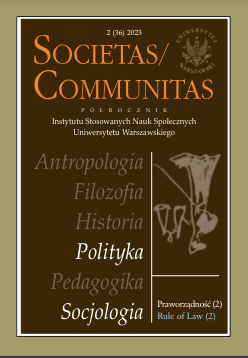Do roboty! Do roboty! Materiały do historii studenckich „brygad żniwnych” (1951-1955)
Let’s get to work! Let’s get to work! Materials for the history of student “harvest brigades” (1951-1955)
Author(s): Elżbieta KaczyńskaSubject(s): Sociology, Labor relations, Vocational Education, Post-War period (1950 - 1989), Sociology of Education
Published by: Instytut Stosowanych Nauk Społecznych Uniwersytetu Warszawskiego
Keywords: Service to Poland; Harvest Brigades; recovered territories; ideological indoctrination; settlers;
Summary/Abstract: In February 1947, as a result of the decision of the Central Committee of the Polish Workers’ Party, the Service to Poland Organization (OSP) was established. The main purpose of this organization was to “educate new man through work”. Vocational school students were recruited to work during the summer holidays. In 1950, the OSP rules were introduced at universities, and students were required to go and work in the fields at harvest time. They were dispatched to State Agricultural Farms (PGR) located in the so-called recovered territories. From Warsaw, students were sent to such state farms in Masuria (former East Prussia) and Western Pomerania. Groups leaving for work were called “brigades” ; participation in them was called voluntary, but in reality various forms of indirect coercion were used. Much has been written about state farms, but the work of students on them is a forgotten episode. This study is devoted to this practice, which lasted from 1950 to 1955. The story of the harvest brigades constitutes a chapter in the history of the living conditions not only of the students, but also of the local population, in the history of relations between the different groups of the local population, and of the attitude towards students displayed by the management of the State Agricultural Farms, the local authorities, and the local population. It is also a chapter of the official propaganda and ideological indoctrination efforts of the Polish United Workers’ Party (PZPR). The source material embraces the author’s own memories and the accounts of several people who took part in the “brigades”, as well as materials from the State Archives in Olsztyn (mainly the minutes from meetings of the Polish United Workers’ Party and the management of the State Agricultural Farms, and reports from inspections) and the collections of the Wojciech Kętrzyński Northern Institute in Olsztyn (formerly: the Wojciech Kętrzyński Centre for Scientific Research). Articles in periodicals and studies containing information directly related to the issues discussed here were also used. In the light of these materials and memoirs, it appears above all that the “enlistment” was ideological, and the Polish authorities do not seem to have had any illusions regarding the economic benefits of working under the OSP or in the harvest brigades. Secondly, the students’ work made little sense, especially as the state-run farm economy was in a deplorable condition. Thirdly, there were local disputes due to the State’s attitude towards the indigenous population and the enormous diversity among the new settlers, which had deteriorated as a result of the bad economic situation and uncertainty regarding the permanence of the country’s borders and politics. Life in the “recovered territories” in the years 1950-1950 comes across as tragic, while simultaneously displaying elements of the grotesque.
Journal: Societas/Communitas
- Issue Year: 2023
- Issue No: 36 (2)
- Page Range: 125-175
- Page Count: 51
- Language: Polish

